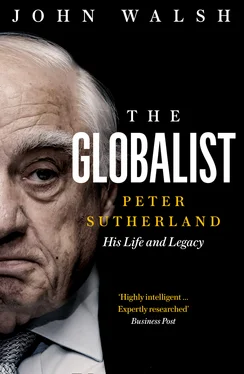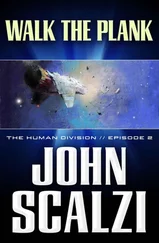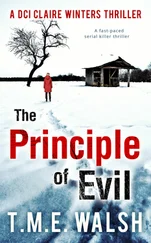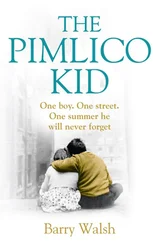At this point the AG refers back to the charge before the court, a conspiracy to import arms into the State in contravention of S 17 of the Firearms Act 1925. Principally, he focused upon the terms of the specific exclusion under S 17 (8) of the Act which provides for the legitimate importation of arms and ammunition ‘under the authority of the Minister for Defence for the use of the Defence Forces’. This is a crucial distinction and Michael McDowell concluded that those preparing the Book of Evidence may have taken the view that the case turned on the intended use of the arms (not on the knowledge or authority of the Minister for Defence) and that any evidence as to the Minister’s state of mind (which accounts for a significant amount of the excised material from Hefferon’s original Garda statement) may have been justifiably excised as prima facie hearsay. While this may indicate a very narrow and specific view of the case it does not support the charge that evidence was tampered with in bad faith or that it was improperly suppressed.
The Attorney General concluded in his report that: Prosecution was already in train before a statement was taken from Col. Hefferon. While the original statement made to the Gardai may have contained material that was politically embarrassing for James Gibbons and for the Government, it did not (as was suggested by the programme and by a number of commentators) remove the basis for a return to trial of the defendants. Col. Hefferon’s evidence as given in court was consistent with his original statement and it did not provide grounds for a direction to acquit.[3]
In other words, there was no conspiracy.
*
After the trial, Sutherland went back to burnishing his credentials at the Four Courts as one of a clutch of young barristers who were destined for greater things. The Four Courts refers to the Supreme Court, High Court, Court of Appeals and the Dublin Circuit Court. Sutherland was involved in some of the highest-profile cases of that decade. In June 1970 Daniel Brolly, from Lifford, Co. Donegal, a 51-year-old foreman employed by the Board of Works, claimed damages against Patrick McGowan, forty-three, a Fianna Fáil senator, chairman of the county council, hotelier and potato merchant of Ballybofey, Co. Donegal, for alleged ‘criminal conversation’ with his wife, 34-year-old Anne Mary Maxwell, and for ‘enticing her away from his house and society’. (The offence of criminal conversation has now been abolished, but at the time it enabled a husband to claim damages from his wife’s adulterous partner.) Sutherland acted on behalf of Senator McGowan. The case generated acres of coverage across the national press as salacious details of the affair were disclosed during the trial.
An application was made by McGowan’s legal team to have the case heard ‘in camera’, but this was rejected by the judge. In his statement of claim Brolly asserted that he and his wife had been married since April 1953 and that she had lived with him and their five children until May 1969. Since that time at various dates she had been ‘debauched’, ‘enticed’ and ‘procured against her will’ to ‘depart and remain absent from his house and society’. For prolonged periods she had been ‘harboured and detained’ by McGowan at various places around Ireland, in Donegal, in Sligo and in Dublin. As a result, Brolly was deprived of the services of his wife, his inalienable family right had been violated, the constitution and authority of his family destroyed, and he had suffered great mental distress. McGowan’s defence was that Maxwell had left the marriage of her own free will.
The case was eventually settled and McGowan agreed to pay a sum of IR£3,900, although there was no admission of liability. Marie Fleming, one of Brolly and Maxwell’s five children, who suffered from multiple sclerosis, unsuccessfully brought a case against the state for the right to end her own life. She died peacefully in 2013, having written extensively about her father’s case against McGowan in her memoir.
Sutherland was also involved in one of the highest-profile cases of the early 1980s. The Stardust was a nightclub situated in the north Dublin suburb of Artane. Forty-eight young people lost their lives when fire destroyed the club on 14 February 1981, dozens more being left with life-changing injuries. A Tribunal of Inquiry into the tragedy was held under Mr Justice Ronan Keane, Sutherland representing the manager and leaseholder of the Stardust, Eamon Butterly. It was not a popular cause, and Butterly was the target of widespread public disapproval. The tribunal found that it was ‘probable arson’. It was one of the last cases Sutherland would defend. He was soon to become attorney general.
SUTHERLAND HAD DISPLAYED VERY FEW POLITICALinclinations while at UCD. In a choice between rubbing shoulders with the country’s future leaders at the L&H Society and playing rugby, the latter won out every time. But a successful career at the Bar hinges on vaulting ambition as well as cultivating the right sort of political ties. Ireland was a two-and-a-half-party state in the 1960s. For thrusting young barristers looking to make an impression, it was generally a choice between Fianna Fáil and Fine Gael. The two parties dominated the Irish political landscape from the foundation of the state onwards. Fianna Fáil, for most of its existence, was a cultural movement more than an orthodox political party. It was nominally left of centre but, in reality, it attracted people from across the ideological spectrum. What united all of them was the party’s commitment to a united Ireland. Being sound on the ‘national question’ was a pre-condition for membership of the ‘Republican Party.’ Fine Gael was almost the mirror opposite. It was firmly centre right and had a natural antipathy to the sort of nationalism displayed by Fianna Fáil. Its membership tended to be big farmers and the middle classes.
Some young barristers opted for Labour, but their choice was motivated by ideology rather than ambition. Many people, including new entrants to the Bar, cleaved to one party or the other based on civil war considerations. Not so Sutherland. He came from a Fine Gael background, but not because it was the side his grandparents had taken during the foundation of the state.
Sutherland’s grandfather had been the treasurer for Dublin Corporation. When he died in 1921, the family were bereft. Sutherland’s grandmother went to W. T. Cosgrave, the Minister for Finance, and explained her family’s straitened circumstances. She was a qualified public health nurse and Cosgrave ensured that she was put on the public payroll. According to Sutherland, Cosgrave’s benevolence was one of the reasons why he was affiliated to Fine Gael. But then again, Fine Gael would probably have been a natural home for the Sutherlands. They were after all a prosperous south Dublin family.
Sutherland was also drawn to the party thanks to Declan Costello’s 1965 policy pamphlet, ‘Towards a Just Society’. Costello cited the grinding poverty and poor housing conditions in his Dublin North West constituency as one of the main reasons for writing the document. ‘Share the resources of economic recovery fairly and, when an ill wind blows, prioritise the protection of the weak and the vulnerable,’ was one of its main themes. In calling for much greater economic planning and more government intervention in the economy, it was an attempt to address the shortcomings of an increasingly sclerotic Irish state.
Garret FitzGerald also joined Fine Gael because of the pamphlet. FitzGerald, who had struck up a good rapport with Sutherland at UCD, was another Jesuit-educated middle-class boy from Dublin. His parents came from a mixed marriage: his mother, Mabel McConnell, was from Northern Ireland and had converted to Catholicism upon her marriage to Desmond FitzGerald, the Minister for External Affairs in the first Irish government.
Читать дальше












